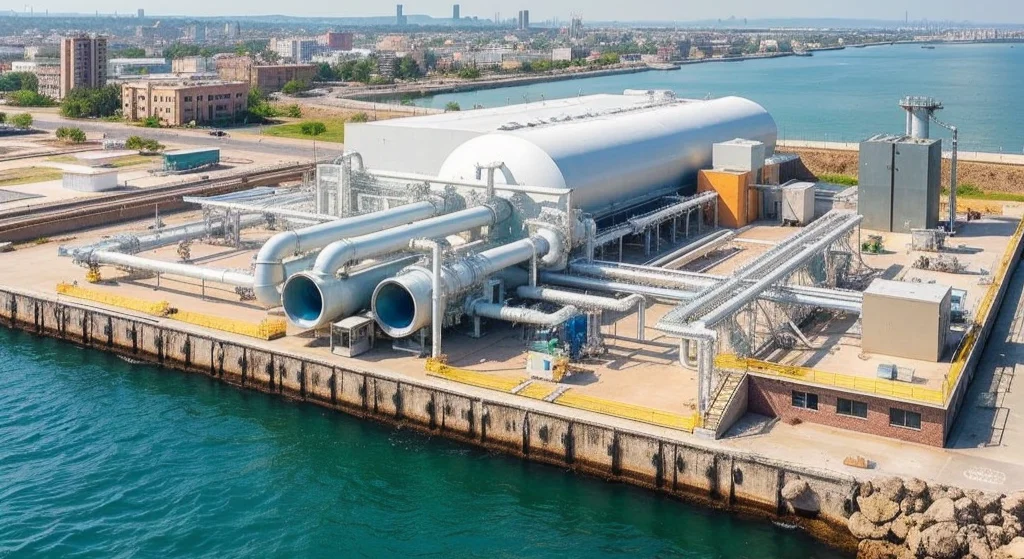Pakistan-In an innovative approach to mitigate Karachi’s enduring water scarcity, the Karachi Water and Sewerage Corporation (KWSC) has launched an ambitious seawater desalination project at Ibrahim Hyderi. This state-of-the-art facility, which will produce 5 million gallons of potable water per day (MGD), marks Pakistan’s first venture into seawater desalination under a Public-Private Partnership (PPP) model, representing a significant leap forward in securing clean water for the city’s residents.
This project operates under the Design, Build, Finance, Operate, and Transfer (DBFOT) model, highlighting a strong collaboration between the public and private sectors. The journey began with a green light from the PPP Policy Board, the top authority on PPP projects, which led to the hiring of consultants to conduct thorough technical, legal, and financial studies, ensuring the feasibility of building a desalination plant in Karachi.
At the heart of this project is the use of Reverse Osmosis (RO) technology, a highly effective method for converting seawater into drinkable water. To maintain a steady supply of seawater, a 1.30-kilometer-long intake pipe will be installed, reaching a depth of 2 meters, even during low tides. The seawater will then be transported to the RO plants via a dedicated pump station equipped with deep well turbine pumps. The strategic location of the plant at Ibrahim Hyderi ensures that the treated water can be efficiently delivered to the Ghazi Pumping Station through Coast Guard Chowrangi, with a backup pumping facility in place to guarantee reliability in case of any operational issues.
The project is designed with a 27-year concession period, encompassing a 2-year construction phase followed by 25 years of operation. This long-term commitment underscores the project’s vital role in addressing Karachi’s persistent water challenges.
From a financial perspective, the project offers significant incentives for the private partner financing the initiative. Once the plant reaches its Commercial Operation Date (COD), the Government of Sindh (GoS) will begin payments to the private partner. These payments include capacity payments, covering debt service, fixed operating and maintenance costs, and a return on equity. This structure ensures that the private partner is compensated for maintaining the plant’s availability, regardless of the actual water output. Additionally, production or variable payments will be made based on the volume of potable water produced and delivered, covering variable operational and maintenance costs.
A noteworthy aspect of this project is the option for the private partner to expand the plant’s capacity up to 6.5 MGD. This extra capacity could be used to produce and sell bottled water, potentially reducing the overall tariff and boosting the project’s financial sustainability.
The investor solicitation process is already in full swing, with bidding documents launched on August 16, 2024, and a submission deadline set for October 25, 2024.
This desalination plant is a landmark project for Pakistan, being the first of its kind developed under a PPP model. Its success will not only bring much-needed relief to Karachi’s residents but also shine a spotlight on the transformative power of the Government of Sindh.



